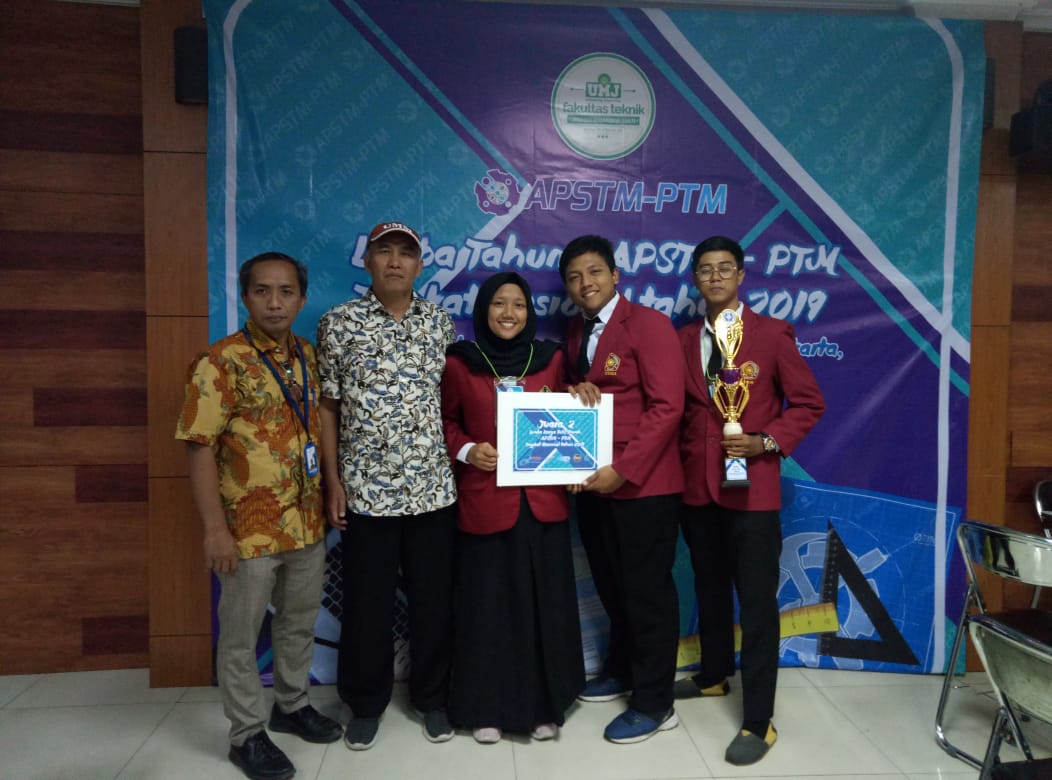SALT includes renewable minerals and unlimited amounts. Indonesia with its tropical climate and long coastline is a country with promising production potential. On the other hand, domestic and world salt usage continues to increase. To cover up the shortfall, import is carried out.
In 2018 Indonesia's salt imports will reach 3.7 million tons with a value of 83.6 million USD, and 2019 salt imports will be allocated 2.7 million tons. The reason given by the Government is that the production and quality of Indonesia's local salt is insufficient for the needs of domestic industries, both for industrial and food purposes.
"This means that the state will issue Rp1, 34 Trillion for salt imports. With such a large import fee, while salt farmers are far from being prosperous, "said Haryo Widya Darman, Mechanical Engineering student at the University of Muhammadiyah Malang when explaining his proposal at the Mechanical Engineering Design IX.
"The lack of expert assistance and less than traditional exploitation have some shortcomings, such as limited land ownership, highly dependent on weather and low production efficiency, making local salt quality less desirable. Industry, "Haryo said when met Monday (10/14) afternoon.
According to students who have won this international event, a solution is needed in the form of land expansion which is flexible but helps accelerate the production of salt according to appropriate standards, so that it can be moved and brought closer to the factory, thereby reducing transport and truck operating costs.
"The solution in the form of adding floating land makes sense, because it can be moved or brought closer to the factory. And embedded additional technology in the form of an android control device to determine the position, water content, temperature, and activation of automatic mechatronic features, "he explained when explaining what a Salt Barge.
Because it is equipped with a roof, mirror, windmill generator, automatic controlled shovel, stainless barge, tow hook, and anchor makes it easy to move, so that the manufacture of hybrid salt ponds is expected to be a solution to help farmers accelerate the production of salt according to industry requirements.
With this barge design, it is expected to answer problems such as land limitations because the crystallization process is carried out on the sea, the quality of salt that can be improved such as cleanliness, color, decrease in water content, and production acceleration which was originally 15 days to 8-10 days due to mechatronic engineering.
"Which means that the production of the harvest will be faster with better quality and will increase the selling price of a higher crop. It is hoped that this solution will be the cause of the cessation of salt imports by the government. We are currently preparing patent documents for this product, "concluded Haryo, UMM team leader.
Haryo did not fight alone. In this race he was a team with other mechanical engineering students, namely Zehandana Khatami (class of 2016), and his younger brother Annisa Widya Nurmalitasari (class of 2007). With the composition of this team, they managed to get 7th place out of 44 proposals participating in the selection.
Although they have not yet received satisfactory results, their finding machine is again contested at an event held by the Association of Mechanical Engineering Study Programs-Muhammadiyah Universities in Indonesia. From the results of the selection of finalists totaling 8 teams, the White Campus UMM team succeeded in getting 2nd place. (Can)
